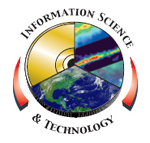
Please Note: The content on this page is not maintained after the colloquium event is completed. As such, some links may no longer be functional.
James Kennedy
The Particle Swarm: Social Interaction as Intelligence
Wednesday, September 26, 2012
Building 3 Auditorium - 11:00 AM
(Coffee and cookies at 10:30 AM)
The particle swarm algorithm originated as a kind of hybrid of social-psychological simulations and evolutionary computation approaches. Different from evolutionary algorithms, individuals in a swarm retain their identities over time; each individual serves as teacher and learner simultaneously, and the group solves problems through an iterative process of collaboration. Since the first publications in 1995 the algorithm has undergone important changes. I will present some of my own and others' research toward understanding how the particle swarm works and how to improve its performance, offering some insights into the interplay of individual-level parameters and high-level features of the population. I will also describe some intriguing new directions that the work is going -- hint: it's getting smaller and bigger -- and will discuss some directions that I think would be interesting for this research to go.
James Kennedy is a social psychologist who has been working with the particle swarm algorithm, which he originated with Russell C. Eberhart, since 1994. He received his Ph.D. in 1992 from the University of North Carolina, and works for the federal government in Washington, DC. He has published dozens of articles and chapters on particle swarms and related topics, in both computer-science and social-science journals and Proceedings. The Morgan Kaufmann volume, "Swarm Intelligence," by Kennedy and Eberhart, is now in its third printing. Kennedy and Eberhart were awarded the IEEE Computational Society's Pioneer Medal for lifetime achievement at the 2012 IEEE Symposium on Computational Intelligence for Security and Defense Applications in Ottawa, Canada, in July.
IS&T Colloquium Committee Host: Chris Lynnes
Sign language interpreter upon request: 301-286-7040
Request future announcements
